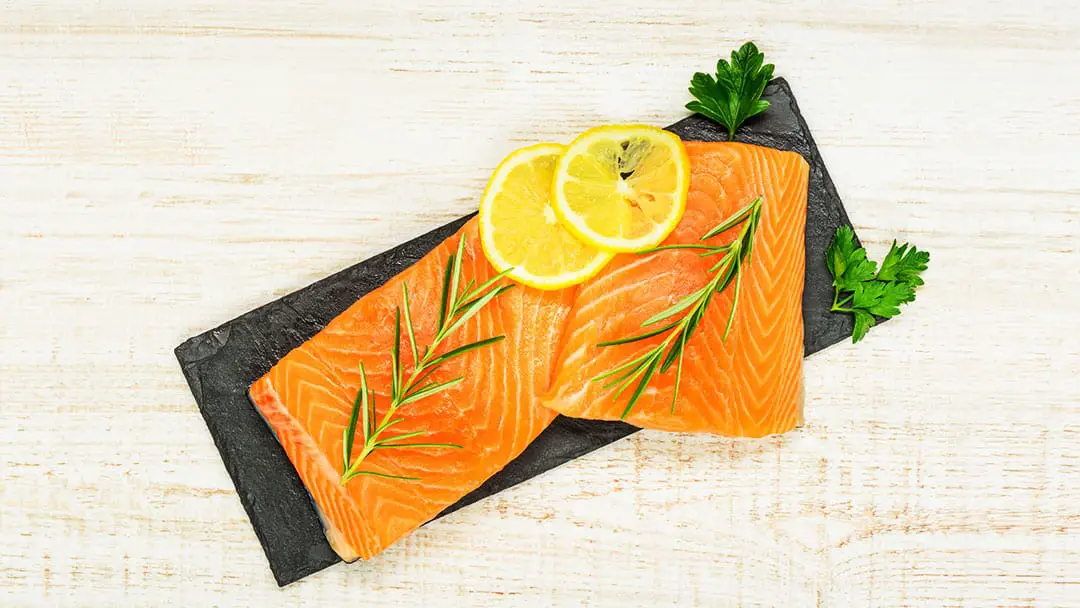Can You Have Lemon Juice on the Carnivore Diet?

As an Amazon Associate we earn from qualifying purchases made on our website. If you make a purchase through links from this website, we may get a small share of the sale from Amazon and other similar affiliate programs. You can read our complete legal information for more details. By using this site, you agree the information contained here is for informational purposes only. For specific medical questions, consult your doctor. NO information on this site should be used to diagnose, treat, prevent or cure any disease or condition.
Lemons seem like a harmless fruit, with plenty of vitamins that can potentially benefit your body. Some common questions I hear are, we need Vitamin C from fruit, right? Why would they be excluded from a carnivore diet? Can I still use them?
Because lemons come from the plant kingdom, they are not permitted on a true carnivore diet; this includes lemon juice or any other juice for that matter.
Some questions to ponder:
- Is a lemon the perfect fruit to add to a carnivore, aka zero-carb diet?
- Were our ancient ancestors 100% carnivores all year round?
Probably not.
- Did our ancient ancestors eat loads of fruit, vegetables, grains, and processed sugar every day of the year?
Definitely not.

Hunter-Gatherers
Baring the last 10,000 years when we seem to have fallen off the rails, you can logically summarize our eating habits as follows:
- Find a source of meat and fish, and
- Eat some tubers, fruit, and honey when in season, and
- Forage out of desperation to avoid starvation until you find more meat and fish.
When people hear the term Hunter Gatherer, I think many put it in a modern context.
The men went off to hunt, then the women foraged for fruit & vegetables, and then at the end of the day, they had a nice balanced meal.
This probably isn’t the case; chances are they would have all hunted for meat and fish as a priority.
If they caught an animal, they would not then go and try to source some potatoes and peas to go along with it.
But would they try to get some honey if they stumbled across a beehive? Sure, they would.
If you want to go even deeper into our history, you may find “Sapiens: A Brief History of Humankind” by Yuval Noah Harari to be mentally satiating.
Modern Carnivores
Our switch from hunters to farmers brought a dietary shift, and our health has suffered ever since.
Fortunately for those who live in the Western world, we have access to a wide range of food in supermarkets.
While 90% of that food is varying degrees of garbage, there will be a meat aisle. And you can basically eat as much meat as you can afford.
Which is awesome.
So, you can tailor your carnivore diet to whatever you want.
For the most part, a contemporary Carnivore Diet is where you only eat animal products like meat, fish, eggs, and dairy. And you avoid all plant foods like grains, sugar, and vegetables.
However, exceptions are made, and you can tailor a carnivore diet if you wish.
For instance, coffee is technically a plant, so it should not be consumed on a strict carnivore diet, but nearly everyone has coffee on a zero-carb diet, and no one bats an eyelid.
But if you want to go down the rabbit hole of what to drink on a carnivore diet, you will most likely want to read these articles:
- Can You Drink Alcohol On The Carnivore Diet? (Why and Why not?)
- 11 Reasons to Quit Coffee on a Carnivore Diet (#7 is a Surprise)
- Can You Drink Tea On the Carnivore Diet? (Why and Why Not?)
If you want a doctor’s perspective on this, then it’s recommended you pick up these two books:

Modern fruit
Ancestrally I can argue for adding a little seasonal fruit into a carnivore diet, but there are some sizable issues and grey areas. For example:
Spliced
Nearly all fruit that is available nowadays would not have existed in our ancient times.
We have engineered almost every piece of fruit available in your local supermarket.
Lemon is a hybrid descended from wild citrus plants that no longer exist. (1)
Sugar Bombs
Year after year, fruit is grown to be bigger, sweeter, and have fewer seeds.
The fruits that the modern versions descended from would have been much smaller, more fibrous, more bitter, and nearly all seed.
Location
Presuming we ate seasonal fruit, that season is small. If you have an apple tree, you will know that the apples are only ripe for a week or two before they all fall to the ground and rot.
So, depending on where your ancestors are from, your exposure to fruit would have been somewhere between limited and non-existent.
Compare that to the modern supermarket where they can provide you with the same fruit all year round, no matter where you live.
Mainstream lemons
Lemons get pretty good press in the mainstream media. They are said to be good sources of Vitamin C, Potassium, Vitamin B6, and Fiber.
And probably due to the benefits of Vitamin C, they have been linked to having positive effects on Heart Disease, Kidney Stones, Cancer, and Inflammation. (2)
The macros are also ok for people on any low-carb diet. They come in at around (per 100g):
- Carbs – 9 grams
- Protein – 1.1 grams
- Fat – 0.3 grams

Reality of lemons
I take the mainstream media benefits of lemons with a pinch of salt; in fact, I pretty much ignore them.
I’ve learned from other sources that any benefits of a Vitamin C boost are outweighed by the amount of natural sugar you will be consuming to get the Vitamin C you want.
When Vitamin C and Sugar compete for the same pathway in a cell, trying to get Vitamin C from a sugary piece of fruit is highly inefficient, if not pointless.
But don’t take my word for it. This lengthy article goes into detail about the detriments of sugar and what it does to vitamin C.
Yet, this is why I have more time for Lemons than nearly all other fruits.
People usually don’t pick up a lemon, peel it, and eat it as a snack because it is sour and bitter.
Therefore, you are less likely to overindulge in it than you would on, say banana or an orange.
Orange juice is a classic example; how many people do you know that think having a glass of orange juice is part of a healthy breakfast?
Or they talk non-stop about the virtues of their fruit smoothies!
Even the biggest fruitaholic might struggle to eat four bananas, four oranges, and a bag of frozen berries whole. But that quantity of fruit is easy to consume in a smoothie.
And that is how people get into trouble; they are just drinking nice-tasting sugar water and don’t even realize it.
I can definitely relate, as I had a smoothie packed with fruit and nasty kale almost every day before I saw the light.
We dive deeper into the Vitamin C equation and how it works on a carnivore diet in this popular post, Do You Need Vitamin C On The Carnivore Diet?

How to eat lemons if you are a carnivore
The best thing about lemon is that you don’t consume it like other fruits.
You mainly consume it as a condiment, and if you use lemon and are not interested in being a super strict carnivore, then chances are it should be fine.
In fact, a little lemon juice can help with palatability and allow you to eat even more meat.
For example, a bit of lemon juice can improve the taste of a piece of salmon or cod, or you can use lemon as part of a homemade sauce for your chicken.
Or if you don’t drink coffee, hot lemon water might hit the spot in the depths of winter.
By using it as a condiment or ingredient in a sauce, you are changing the dish’s flavor but limiting the potential drawbacks of modern-day fruit.
Common sense
Using lemon as a condiment could help give you a variety of tastes when you are in the initial transition phase, where there is the potential for you to get bored of the same flavor profiles.
It could also be acceptable for long-term carnivores who are fully healed.
However, the only way to know if lemon is benign for you is to actually not have it—elimination style.
At some point on a carnivore diet journey, some people believe it is a good idea to do a strict beef and water version of a carnivore diet as a reset.
Then you can start adding foods back in slowly to see how they affect you. If you add a lemon back in as a condiment and it results in no adverse reactions, then great.
But at least you know, and you aren’t just guessing.

Bring it all together
As with everything, it is all about the details. Carnivore diet advocates will say the lemon is a fruit, so it shouldn’t be eaten regularly and in large quantities on a carnivore diet.
But it is likely not harmful for most people if used sparingly as a condiment.
Some people could have a small amount of lemon juice on their salmon every day with no ill effects; some people could have one slice of lemon in their water and find their depression or arthritis comes back the very next day.
At the end of the day, only you know if you can tolerate lemons.
For starters
If a carnivore diet is new to you or you don’t know where to start, then I would highly suggest investing in this book first, “The Carnivore Diet” by Dr. Shawn Baker.
Then head to Dr. Baker’s website and sign up for carnivore diet coaching through MeatRX.
Next, subscribe to our YouTube channel, where you will find meaty content and recipes that are perfect for a carnivore diet!
Carnivore Discounts
- Redmond Real Salt and Re-Lyte Electrolyte Mix (15% Discount)
- White OakPastures Regenerative Farmed Meat (10% Discount)
- Carnivore Crisps (10% Discount)
- Live Water Glass Bottled Spring Water (11% Discount)
Disclaimer: I’m not a doctor. Consult with and ask your doctor about any diet or medical-related questions. No information on this site should be used to diagnose, treat, prevent, or cure any disease or condition.



